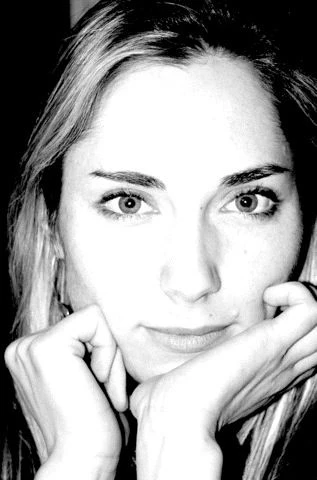Lessons on the Yogic Path: Uncovering the Jewel Within

Positive change is possible when approached with a mindset of patience and self-compassion, writes yoga teacher Christine Malossi in this blog post. Rather than berating yourself each time you slip up, practice compassion towards yourself, and recognize that while you’re making your best efforts to be healthy and happy there may be missteps along the way, and that’s okay.
Is there something you’d like to change about yourself? Maybe exercise more, quit smoking, get organized, or spend more time with your family? Most of us, even if we’re pretty happy and satisfied with our lives, feel there’s some way in which we could be better: A flaw we wish we could fix, a few pounds we’d like to shed, a couple of unwanted habits that could be eliminated. We might occasionally take a step back and reevaluate our lives, and resolve to change. We see opportunities to become healthier, happier, more fulfilled.
While having the intention to make healthy changes is undoubtedly a good thing, sometimes the desire to “improve” or “upgrade” our lives can lead us to beat ourselves up when we don’t adhere perfectly to the course we’ve charted for ourselves. This harsh attitude towards oneself is actually counter-productive to the health and happiness we’re intending to create through our resolutions.
Within several passages in the Yoga Sutras, Patanjali addresses overcoming negative patterns and behaviors. A central message of this text is that these behaviors do not disappear overnight, but may be overcome when worked with step by step. Positive change is possible when approached with a mindset of patience and self-compassion.
When we decide we want to make a change in our lives, often we are identifying a negative behavior that we want to alter. However, sometimes instead of seeing it as simply a behavior or habit, we see it as an inherent part of ourselves. Then when we mess up, or falter, or fail to change, we believe there is something fundamentally wrong with us. Rather than surrendering to this self-denigrating attitude, we can take a step back and see the distinction between our behavior and our true selves.
The Yoga Sutras describe in detail a specific process of examining the clutter in the mind that obscures the brilliance of the true self. Imagine the self as a luminous diamond. Over the course of our lives, this bright jewel becomes clouded by our experiences and by conditioned thoughts and behaviors. We consequently forget the inner radiance that still exists under the layers of dirt and dust. The practices of yoga are intended to rub off layer by layer the coating that obscures the clarity and beauty of the true self.
As you work towards changing a behavior, it may be helpful to come back to this image of your behavior as a layer of dust obscuring the brilliance that lies at your core. You don’t need to completely overhaul yourself; you just need to do a little dusting.
Rather than berating yourself each time you slip up, it’s more productive to see the mistake as an opportunity to learn. It’s also an opportunity to practice compassion towards yourself; to recognize that while you’re making your best efforts to be healthy and happy there may be missteps along the way, and that’s okay.
During times when I’m working to make a change in my habits or behaviors, I often turn to these words of Pema Chodron from her book The Wisdom of No Escape:
When people start to meditate or to work with any kind of spiritual discipline, they often think that somehow they’re going to improve, which is a sort of subtle aggression against who they really are. It’s a bit like saying, ‘If I jog, I’ll be a much better person.’ ‘If I could only get a nicer house, I’d be a better person.’ ‘If I could meditate and calm down, I’d be a better person’…The point is not to try to change ourselves. [The] practice isn’t about trying to throw ourselves away and become something better. It’s about befriending who we are already. The ground of practice is you or me or whoever we are right now, just as we are. That’s the ground, that’s what we study, that’s what we come to know with tremendous curiosity and interest.
As you work towards uncovering that bright jewel at your core, be kind to yourself. Acknowledge the inner source of wisdom, strength and resilience that inspired you to make a healthy change. Look inside yourself honestly, openly and with true compassion.
 Christine Malossi, RYT is based in New York City, where she offers a mindful, alignment-focused Vinyasa practice that cultivates balance, awareness and equanimity. In addition to teaching private clients and group classes at studios throughout Manhattan, she also teaches at the Spencer Cox Center for Health at Mount Sinai Hospital’s Institute for Advanced Medicine where she designs a practice specifically tailored to patients diagnosed with HIV and other chronic illnesses. Christine is honored to be teaching yoga and to have the opportunity to pass on to others the joy and freedom that she has found in her own practice.
Christine Malossi, RYT is based in New York City, where she offers a mindful, alignment-focused Vinyasa practice that cultivates balance, awareness and equanimity. In addition to teaching private clients and group classes at studios throughout Manhattan, she also teaches at the Spencer Cox Center for Health at Mount Sinai Hospital’s Institute for Advanced Medicine where she designs a practice specifically tailored to patients diagnosed with HIV and other chronic illnesses. Christine is honored to be teaching yoga and to have the opportunity to pass on to others the joy and freedom that she has found in her own practice.



